- Home
- Edith Wharton
The Reckoning
The Reckoning Read online
I
"THE marriage law of the new dispensation will be: Thou shalt not be unfaithful--to thyself."
A discreet murmur of approval filled the studio, and through the haze of cigarette smoke Mrs. Clement Westall, as her husband descended from his improvised platform, saw him merged in a congratulatory group of ladies. Westall's informal talks on "The New Ethics" had drawn about him an eager following of the mentally unemployed--those who, as he had once phrased it, liked to have their brain-food cut up for them. The talks had begun by accident. Westall's ideas were known to be "advanced," but hitherto their advance had not been in the direction of publicity. He had been, in his wife's opinion, almost pusillanimously careful not to let his personal views endanger his professional standing. Of late, however, he had shown a puzzling tendency to dogmatize, to throw down the gauntlet, to flaunt his private code in the face of society; and the relation of the sexes being a topic always sure of an audience, a few admiring friends had persuaded him to give his after-dinner opinions a larger circulation by summing them up in a series of talks at the Van Sideren studio.
The Herbert Van Siderens were a couple who subsisted, socially, on the fact that they had a studio. Van Sideren's pictures were chiefly valuable as accessories to the mise en scene which differentiated his wife's "afternoons" from the blighting functions held in long New York drawing-rooms, and permitted her to offer their friends whiskey-and-soda instead of tea. Mrs. Van Sideren, for her part, was skilled in making the most of the kind of atmosphere which a lay-figure and an easel create; and if at times she found the illusion hard to maintain, and lost courage to the extent of almost wishing that Herbert could paint, she promptly overcame such moments of weakness by calling in some fresh talent, some extraneous re-enforcement of the "artistic" impression. It was in quest of such aid that she had seized on Westall, coaxing him, somewhat to his wife's surprise, into a flattered participation in her fraud. It was vaguely felt, in the Van Sideren circle, that all the audacities were artistic, and that a teacher who pronounced marriage immoral was somehow as distinguished as a painter who depicted purple grass and a green sky. The Van Sideren set were tired of the conventional color- scheme in art and conduct.
Julia Westall had long had her own views on the immorality of marriage; she might indeed have claimed her husband as a disciple. In the early days of their union she had secretly resented his disinclination to proclaim himself a follower of the new creed; had been inclined to tax him with moral cowardice, with a failure to live up to the convictions for which their marriage was supposed to stand. That was in the first burst of propagandism, when, womanlike, she wanted to turn her disobedience into a law. Now she felt differently. She could hardly account for the change, yet being a woman who never allowed her impulses to remain unaccounted for, she tried to do so by saying that she did not care to have the articles of her faith misinterpreted by the vulgar. In this connection, she was beginning to think that almost every one was vulgar; certainly there were few to whom she would have cared to intrust the defence of so esoteric a doctrine. And it was precisely at this point that Westall, discarding his unspoken principles, had chosen to descend from the heights of privacy, and stand hawking his convictions at the street-corner!
It was Una Van Sideren who, on this occasion, unconsciously focussed upon herself Mrs. Westall's wandering resentment. In the first place, the girl had no business to be there. It was "horrid"--Mrs. Westall found herself slipping back into the old feminine vocabulary--simply "horrid" to think of a young girl's being allowed to listen to such talk. The fact that Una smoked cigarettes and sipped an occasional cocktail did not in the least tarnish a certain radiant innocency which made her appear the victim, rather than the accomplice, of her parents' vulgarities. Julia Westall felt in a hot helpless way that something ought to be done--that some one ought to speak to the girl's mother. And just then Una glided up.
"Oh, Mrs. Westall, how beautiful it was!" Una fixed her with large limpid eyes. "You believe it all, I suppose?" she asked with seraphic gravity.
"All--what, my dear child?"
The girl shone on her. "About the higher life--the freer expansion of the individual--the law of fidelity to one's self," she glibly recited.
Mrs. Westall, to her own wonder, blushed a deep and burning blush.
"My dear Una," she said, "you don't in the least understand what it's all about!"
Miss Van Sideren stared, with a slowly answering blush. "Don't you, then?" she murmured.
Mrs. Westall laughed. "Not always--or altogether! But I should like some tea, please."
Una led her to the corner where innocent beverages were dispensed. As Julia received her cup she scrutinized the girl more carefully. It was not such a girlish face, after all--definite lines were forming under the rosy haze of youth. She reflected that Una must be six-and-twenty, and wondered why she had not married. A nice stock of ideas she would have as her dower! If they were to be a part of the modern girl's trousseau--
Mrs. Westall caught herself up with a start. It was as though some one else had been speaking--a stranger who had borrowed her own voice: she felt herself the dupe of some fantastic mental ventriloquism. Concluding suddenly that the room was stifling and Una's tea too sweet, she set down her cup, and looked about for Westall: to meet his eyes had long been her refuge from every uncertainty. She met them now, but only, as she felt, in transit; they included her parenthetically in a larger flight. She followed the flight, and it carried her to a corner to which Una had withdrawn--one of the palmy nooks to which Mrs. Van Sideren attributed the success of her Saturdays. Westall, a moment later, had overtaken his look, and found a place at the girl's side. She bent forward, speaking eagerly; he leaned back, listening, with the depreciatory smile which acted as a filter to flattery, enabling him to swallow the strongest doses without apparent grossness of appetite. Julia winced at her own definition of the smile.
On the way home, in the deserted winter dusk, Westall surprised his wife by a sudden boyish pressure of her arm. "Did I open their eyes a bit? Did I tell them what you wanted me to?" he asked gaily.
Almost unconsciously, she let her arm slip from his. "What I wanted--?"
"Why, haven't you--all this time?" She caught the honest wonder of his tone. "I somehow fancied you'd rather blamed me for not talking more openly--before-- You've made me feel, at times, that I was sacrificing principles to expediency."
She paused a moment over her reply; then she asked quietly: "What made you decide not to--any longer?"
She felt again the vibration of a faint surprise. "Why--the wish to please you!" he answered, almost too simply.
"I wish you would not go on, then," she said abruptly.
He stopped in his quick walk, and she felt his stare through the darkness.
"Not go on--?"
"Call a hansom, please. I'm tired," broke from her with a sudden rush of physical weariness.
Instantly his solicitude enveloped her. The room had been infernally hot--and then that confounded cigarette smoke--he had noticed once or twice that she looked pale--she mustn't come to another Saturday. She felt herself yielding, as she always did, to the warm influence of his concern for her, the feminine in her leaning on the man in him with a conscious intensity of abandonment. He put her in the hansom, and her hand stole into his in the darkness. A tear or two rose, and she let them fall. It was so delicious to cry over imaginary troubles!
That evening, after dinner, he surprised her by reverting to the subject of his talk. He combined a man's dislike of uncomfortable questions with an almost feminine skill in eluding them; and she knew that if he returned to the subject he must have some special reason for doing so.
"You seem not to have cared for what I said this afternoon. Did I put t
he case badly?"
"No--you put it very well."
"Then what did you mean by saying that you would rather not have me go on with it?"
She glanced at him nervously, her ignorance of his intention deepening her sense of helplessness.
"I don't think I care to hear such things discussed in public."
"I don't understand you," he exclaimed. Again the feeling that his surprise was genuine gave an air of obliquity to her own attitude. She was not sure that she understood herself.
"Won't you explain?" he said with a tinge of impatience.
Her eyes wandered about the familiar drawing-room which had been the scene of so many of their evening confidences. The shaded lamps, the quiet-colored walls hung with mezzotints, the pale spring flowers scattered here and there in Venice glasses and bowls of old Sevres, recalled, she hardly knew why, the apartment in which the evenings of her first marriage had been passed--a wilderness of rosewood and upholstery, with a picture of a Roman peasant above the mantel-piece, and a Greek slave in "statuary marble" between the folding-doors of the back drawing-room. It was a room with which she had never been able to establish any closer relation than that between a traveller and a railway station; and now, as she looked about at the surroundings which stood for her deepest affinities--the room for which she had left that other room--she was startled by the same sense of strangeness and unfamiliarity. The prints, the flowers, the subdued tones of the old porcelains, seemed to typify a superficial refinement that had no relation to the deeper significances of life.
Suddenly she heard her husband repeating his question.
"I don't know that I can explain," she faltered.
He drew his arm-chair forward so that he faced her across the hearth. The light of a reading-lamp fell on his finely drawn face, which had a kind of surface-sensitiveness akin to the surface- refinement of its setting.
"Is it that you no longer believe in our ideas?" he asked.
"In our ideas--?"
"The ideas I am trying to teach. The ideas you and I are supposed to stand for." He paused a moment. "The ideas on which our marriage was founded."
The blood rushed to her face. He had his reasons, then--she was sure now that he had his reasons! In the ten years of their marriage, how often had either of them stopped to consider the ideas on which it was founded? How often does a man dig about the basement of his house to examine its foundation? The foundation is there, of course--the house rests on it--but one lives abovestairs and not in the cellar. It was she, indeed, who in the beginning had insisted on reviewing the situation now and then, on recapitulating the reasons which justified her course, on proclaiming, from time to time, her adherence to the religion of personal independence; but she had long ceased to feel the need of any such ideal standards, and had accepted her marriage as frankly and naturally as though it had been based on the primitive needs of the heart, and needed no special sanction to explain or justify it.
"Of course I still believe in our ideas!" she exclaimed.
"Then I repeat that I don't understand. It was a part of your theory that the greatest possible publicity should be given to our view of marriage. Have you changed your mind in that respect?"
She hesitated. "It depends on circumstances--on the public one is addressing. The set of people that the Van Siderens get about them don't care for the truth or falseness of a doctrine. They are attracted simply by its novelty."
"And yet it was in just such a set of people that you and I met, and learned the truth from each other."
"That was different."
"In what way?"
"I was not a young girl, to begin with. It is perfectly unfitting that young girls should be present at--at such times-- should hear such things discussed--"
"I thought you considered it one of the deepest social wrongs that such things never are discussed before young girls; but that is beside the point, for I don't remember seeing any young girl in my audience to-day--"
"Except Una Van Sideren!"
He turned slightly and pushed back the lamp at his elbow.
"Oh, Miss Van Sideren--naturally--"
"Why naturally?"
"The daughter of the house--would you have had her sent out with her governess?"
"If I had a daughter I should not allow such things to go on in my house!"
Westall, stroking his mustache, leaned back with a faint smile. "I fancy Miss Van Sideren is quite capable of taking care of herself."
"No girl knows how to take care of herself--till it's too late."
"And yet you would deliberately deny her the surest means of self-defence?"
"What do you call the surest means of self-defence?"
"Some preliminary knowledge of human nature in its relation to the marriage tie."
She made an impatient gesture. "How should you like to marry that kind of a girl?"
"Immensely--if she were my kind of girl in other respects."
She took up the argument at another point.
"You are quite mistaken if you think such talk does not affect young girls. Una was in a state of the most absurd exaltation--" She broke off, wondering why she had spoken.
Westall reopened a magazine which he had laid aside at the beginning of their discussion. "What you tell me is immensely flattering to my oratorical talent--but I fear you overrate its effect. I can assure you that Miss Van Sideren doesn't have to have her thinking done for her. She's quite capable of doing it herself."
"You seem very familiar with her mental processes!" flashed unguardedly from his wife.
He looked up quietly from the pages he was cutting.
"I should like to be," he answered. "She interests me."
II
If there be a distinction in being misunderstood, it was one denied to Julia Westall when she left her first husband. Every one was ready to excuse and even to defend her. The world she adorned agreed that John Arment was "impossible," and hostesses gave a sigh of relief at the thought that it would no longer be necessary to ask him to dine.
There had been no scandal connected with the divorce: neither side had accused the other of the offence euphemistically described as "statutory." The Arments had indeed been obliged to transfer their allegiance to a State which recognized desertion as a cause for divorce, and construed the term so liberally that the seeds of desertion were shown to exist in every union. Even Mrs. Arment's second marriage did not make traditional morality stir in its sleep. It was known that she had not met her second husband till after she had parted from the first, and she had, moreover, replaced a rich man by a poor one. Though Clement Westall was acknowledged to be a rising lawyer, it was generally felt that his fortunes would not rise as rapidly as his reputation. The Westalls would probably always have to live quietly and go out to dinner in cabs. Could there be better evidence of Mrs. Arment's complete disinterestedness?
If the reasoning by which her friends justified her course was somewhat cruder and less complex than her own elucidation of the matter, both explanations led to the same conclusion: John Arment was impossible. The only difference was that, to his wife, his impossibility was something deeper than a social disqualification. She had once said, in ironical defence of her marriage, that it had at least preserved her from the necessity of sitting next to him at dinner; but she had not then realized at what cost the immunity was purchased. John Arment was impossible; but the sting of his impossibility lay in the fact that he made it impossible for those about him to be other than himself. By an unconscious process of elimination he had excluded from the world everything of which he did not feel a personal need: had become, as it were, a climate in which only his own requirements survived. This might seem to imply a deliberate selfishness; but there was nothing deliberate about Arment. He was as instinctive as an animal or a child. It was this childish element in his nature which sometimes for a moment unsettled his wife's estimate of him. Was it possible that he was simply undeveloped, that he had delayed, somewhat longer than is usua
l, the laborious process of growing up? He had the kind of sporadic shrewdness which causes it to be said of a dull man that he is "no fool"; and it was this quality that his wife found most trying. Even to the naturalist it is annoying to have his deductions disturbed by some unforeseen aberrancy of form or function; and how much more so to the wife whose estimate of herself is inevitably bound up with her judgment of her husband!
Arment's shrewdness did not, indeed, imply any latent intellectual power; it suggested, rather, potentialities of feeling, of suffering, perhaps, in a blind rudimentary way, on which Julia's sensibilities naturally declined to linger. She so fully understood her own reasons for leaving him that she disliked to think they were not as comprehensible to her husband. She was haunted, in her analytic moments, by the look of perplexity, too inarticulate for words, with which he had acquiesced to her explanations.
These moments were rare with her, however. Her marriage had been too concrete a misery to be surveyed philosophically. If she had been unhappy for complex reasons, the unhappiness was as real as though it had been uncomplicated. Soul is more bruisable than flesh, and Julia was wounded in every fibre of her spirit. Her husband's personality seemed to be closing gradually in on her, obscuring the sky and cutting off the air, till she felt herself shut up among the decaying bodies of her starved hopes. A sense of having been decoyed by some world-old conspiracy into this bondage of body and soul filled her with despair. If marriage was the slow life-long acquittal of a debt contracted in ignorance, then marriage was a crime against human nature. She, for one, would have no share in maintaining the pretence of which she had been a victim: the pretence that a man and a woman, forced into the narrowest of personal relations, must remain there till the end, though they may have outgrown the span of each other's natures as the mature tree outgrows the iron brace about the sapling.
It was in the first heat of her moral indignation that she had met Clement Westall. She had seen at once that he was "interested," and had fought off the discovery, dreading any influence that should draw her back into the bondage of conventional relations. To ward off the peril she had, with an almost crude precipitancy, revealed her opinions to him. To her surprise, she found that he shared them. She was attracted by the frankness of a suitor who, while pressing his suit, admitted that he did not believe in marriage. Her worst audacities did not seem to surprise him: he had thought out all that she had felt, and they had reached the same conclusion. People grew at varying rates, and the yoke that was an easy fit for the one might soon become galling to the other. That was what divorce was for: the readjustment of personal relations. As soon as their necessarily transitive nature was recognized they would gain in dignity as well as in harmony. There would be no farther need of the ignoble concessions and connivances, the perpetual sacrifice of personal delicacy and moral pride, by means of which imperfect marriages were now held together. Each partner to the contract would be on his mettle, forced to live up to the highest standard of self-development, on pain of losing the other's respect and affection. The low nature could no longer drag the higher down, but must struggle to rise, or remain alone on its inferior level. The only necessary condition to a harmonious marriage was a frank recognition of this truth, and a solemn agreement between the contracting parties to keep faith with themselves, and not to live together for a moment after complete accord had ceased to exist between them. The new adultery was unfaithfulness to self.

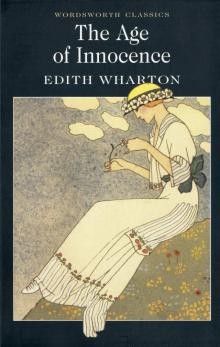 The Age of Innocence
The Age of Innocence The Reef
The Reef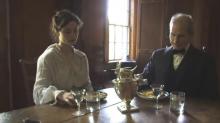 Summer
Summer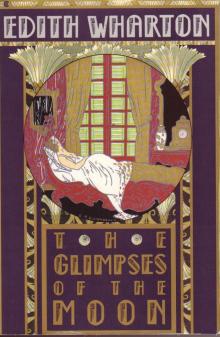 The Glimpses of the Moon
The Glimpses of the Moon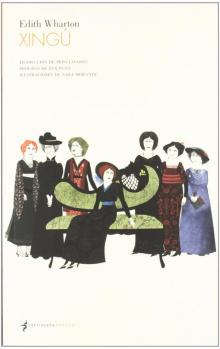 Xingu
Xingu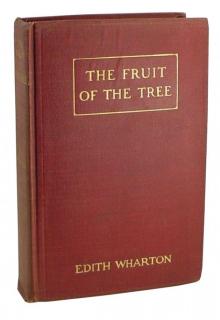 The Fruit of the Tree
The Fruit of the Tree Fast and Loose
Fast and Loose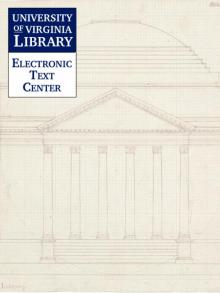 Artemis to Actaeon and Other Verse
Artemis to Actaeon and Other Verse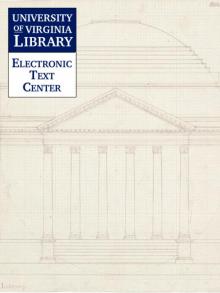 The Line of Least Resistance
The Line of Least Resistance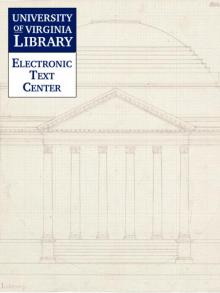 The Lamp of Psyche
The Lamp of Psyche The Reckoning
The Reckoning Afterward
Afterward The New York Stories of Edith Wharton
The New York Stories of Edith Wharton The 2014 Halloween Horrors Megapack
The 2014 Halloween Horrors Megapack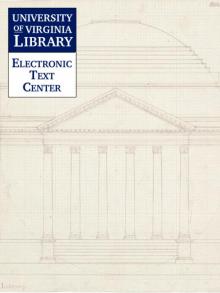 'Copy': A Dialogue
'Copy': A Dialogue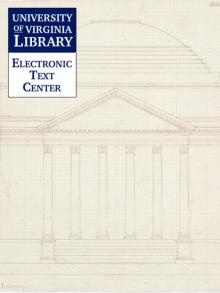 The Recovery
The Recovery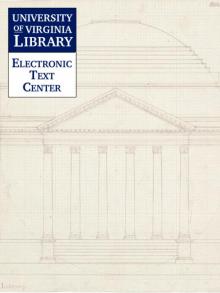 The Fulness of Life
The Fulness of Life Early Short Stories Vol. 1
Early Short Stories Vol. 1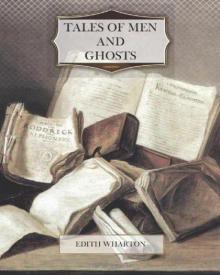 Tales of Men and Ghosts
Tales of Men and Ghosts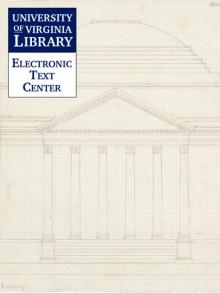 The House of the Dead Hand
The House of the Dead Hand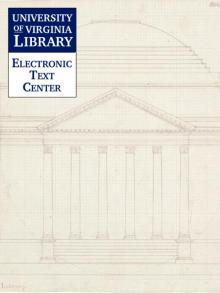 That Good May Come
That Good May Come The Buccaneers
The Buccaneers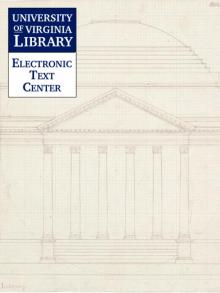 Other Times, Other Manners
Other Times, Other Manners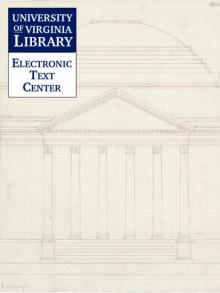 The Hermit and the Wild Woman
The Hermit and the Wild Woman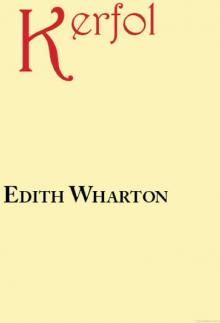 Kerfol
Kerfol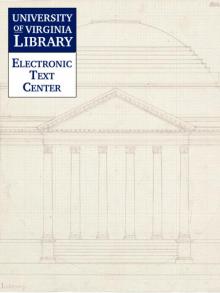 The Duchess at Prayer
The Duchess at Prayer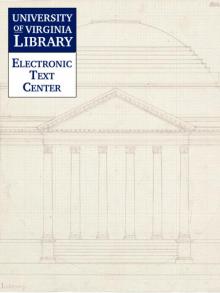 Bunner Sisters
Bunner Sisters The Choice
The Choice Madame De Treymes
Madame De Treymes Ethan Frome, Summer, Bunner Sisters
Ethan Frome, Summer, Bunner Sisters In Morocco
In Morocco The Valley of Decision
The Valley of Decision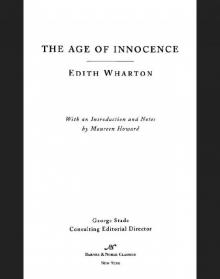 Age of Innocence (Barnes & Noble Classics Series)
Age of Innocence (Barnes & Noble Classics Series)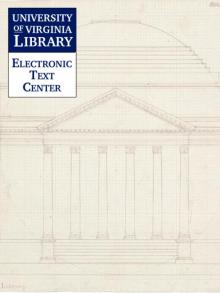 The Angel at the Grave
The Angel at the Grave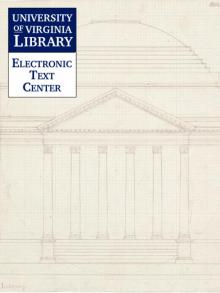 April Showers
April Showers Sanctuary
Sanctuary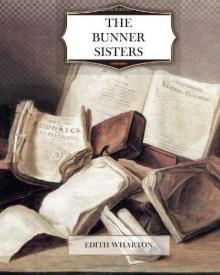 The Bunner Sisters
The Bunner Sisters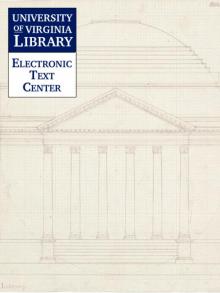 Mrs. Manstey's View
Mrs. Manstey's View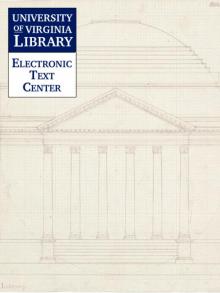 Writing a War Story
Writing a War Story The Custom of the Country
The Custom of the Country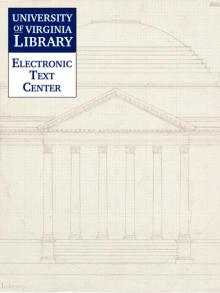 In Trust
In Trust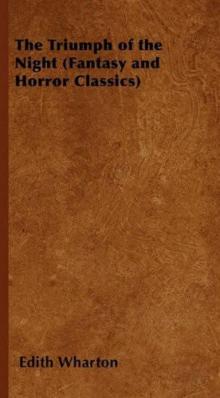 The Triumph of the Night
The Triumph of the Night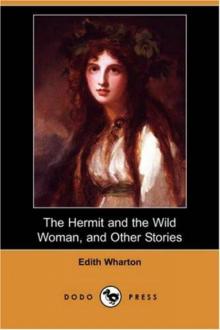 The Hermit and the Wild Woman, and Other Stories
The Hermit and the Wild Woman, and Other Stories Roman Fever and Other Stories
Roman Fever and Other Stories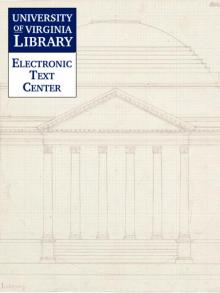 The Mission of Jane
The Mission of Jane The Descent of Man and Other Stories
The Descent of Man and Other Stories Coming Home
Coming Home The Touchstone
The Touchstone Early Short Stories Vol. 2
Early Short Stories Vol. 2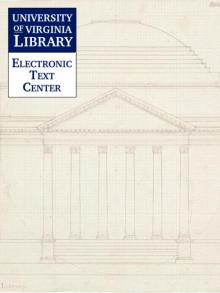 Edith Wharton's Verse, 1879-1919, from various journals.
Edith Wharton's Verse, 1879-1919, from various journals.